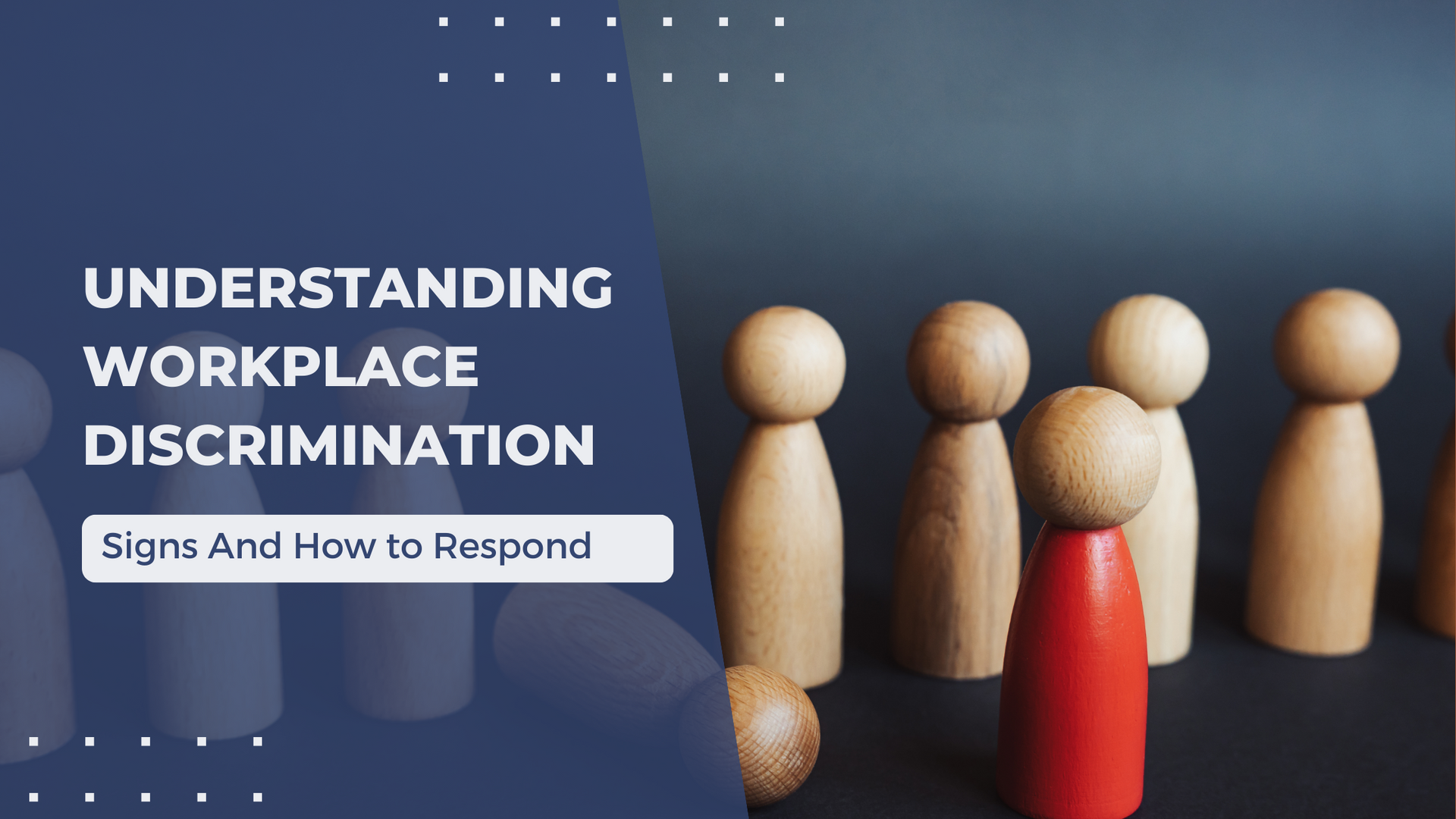What Qualifies as Workplace Discrimination?
You might have heard this term thrown around a lot, but what exactly is a discriminatory act? How is It different from bullying or harassment? The U.S. Equal Employment Opportunity Commission (EEOC), the federal agency that enforces federal employment rights, defines discrimination as treating a “person differently, or less favorably, for some reason.”
In cases of employment discrimination, California aims to safeguard certain characteristics that are more susceptible to workplace discrimination. These are known as "protected classes”.
California Protected Classes:
California legislation safeguards individuals from unlawful employer discrimination, which includes:
- Race, color.
- Ancestry, national origin.
- Religion, creed.
- Age (40 and over).
- Disability, mental and physical.
- Sex, gender (including pregnancy, childbirth, breastfeeding, or related medical conditions).
- Sexual orientation.
- Gender identity, gender expression.
- Medical condition.
- Genetic information.
- Marital status.
- Military or veteran status.
Workplace Rights and Misconduct
Regarding legislation, there’s something important to consider, which is that there exists a federal law protecting individuals from discrimination, that is enforced by the EEOC, which covers:
Unfair treatment because of a protected characteristic,
harassment by managers, co-workers, or others in your workplace, because of a protected characteristic, denial of a reasonable workplace change because of religious beliefs or disability,
improper questions about or disclosure of genetic information or medical information and
retaliation because of complaints filed about job discrimination or assisted with a job discrimination proceeding, such as an investigation or lawsuit.
The federal laws employees can rely on are the following:
- The Equal Pay Act (1963):
This legislation empowers employees to ensure that employers provide equal pay for the same type of work, regardless of gender.
- Title VII of the 1964 Civil Rights Act:
This law prohibits employers from discriminating against job applicants and employees based on race, national origin, or religious beliefs. Discrimination may encompass opportunities for advancement, compensation, and employment.
- Age discrimination laws:
The Age Discrimination in Employment Act of 1967 and a parallel law established in 1975 provide safeguards for individuals aged 40 and above.
- Disability discrimination laws:
The Americans with Disabilities Act (ADA) forbids discrimination based on disability in employment, state and local government, public accommodations, commercial facilities, transportation, and telecommunications.
- Civil rights discrimination:
The Civil Rights Act of 1964 established fundamental rights against racial discrimination, and the Civil Rights Act of 1991 broadens the contextual scope of these protections.
At the state level, California’s Fair Employment and Housing Act (FEHA) is responsible for addressing workplace sexual harassment allegations. Both federal and state anti-harassment and discrimination laws mandate that employers proactively cultivate a work environment free from unlawful harassment and discrimination, irrespective of the basis.
Notably, California’s state-level regulations offer more comprehensive protections than federal laws. California’s FEHA safeguards all individuals susceptible to inappropriate treatment at work, encompassing employees, job applicants, unpaid interns, volunteers, and contractors or third-party vendors. Crucially, California state law is applicable to all private, state, and local employers, regardless of the company's size or an individual’s immigration status. In contrast, Title VII's anti-harassment protections apply solely to employers with fifteen or more workers.
As a result, California’s Fair Employment and Housing Act is generally regarded as a robust legal framework for pursuing sexual harassment claims in California, providing a more favorable stance for employees seeking redress.
What To Do
If you believe you are experiencing workplace discrimination in California, consider taking the following steps:
- Document the Incidents: Keep a detailed record of the discriminatory incidents, including dates, times, locations, individuals involved, and a description of what occurred.
- Review Company Policies: Familiarize yourself with your company's policies on discrimination and reporting procedures. These can often be found in employee handbooks or on the company's intranet.
- Report to Supervisors or HR: If the issue persists, report the discrimination to your supervisor, human resources department, or another appropriate authority within your organization. Follow your company's reporting procedures.
- Keep Records of Reports: Maintain a record of any complaints or reports you make, including dates, names of the individuals you spoke to, and the details of the conversations.
- Contact the California Civil Rights Department (“CRD”): If your concerns are not addressed internally, you can file a complaint with the DFEH, the state agency responsible for enforcing anti-discrimination laws.
- Consult an Employment Attorney: Seek advice from an employment attorney, they can guide your rights and potential legal actions.
Conclusion
Remember that these steps are general guidelines, and the specific circumstances of your situation may require different approaches. It is essential to consult with professionals such as LFECR, an experienced employment law firm that can provide guidance, support, and legal representation to help you pursue justice and hold your former employer accountable for their actions. With the right legal counsel, you can navigate the legal process and work towards a fair resolution.
If you or someone you know is seeking support, our experienced labor rights lawyers at
Lawyers for Employee and Consumer Rights are here to guide you toward a resolution that upholds your rights and dignity.
Call
844-697-4448 today for a free and confidential consultation to get the help you need and deserve.





